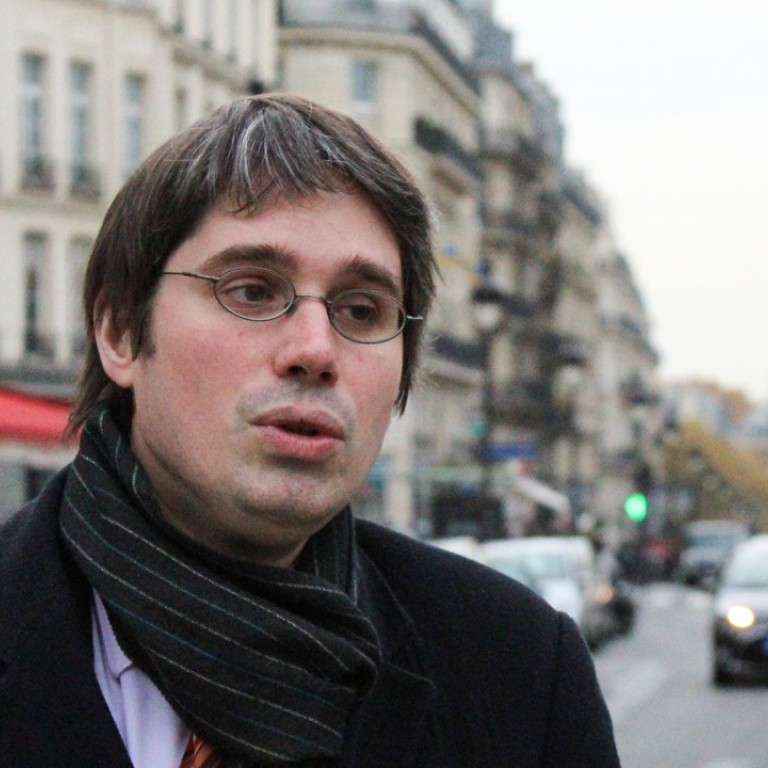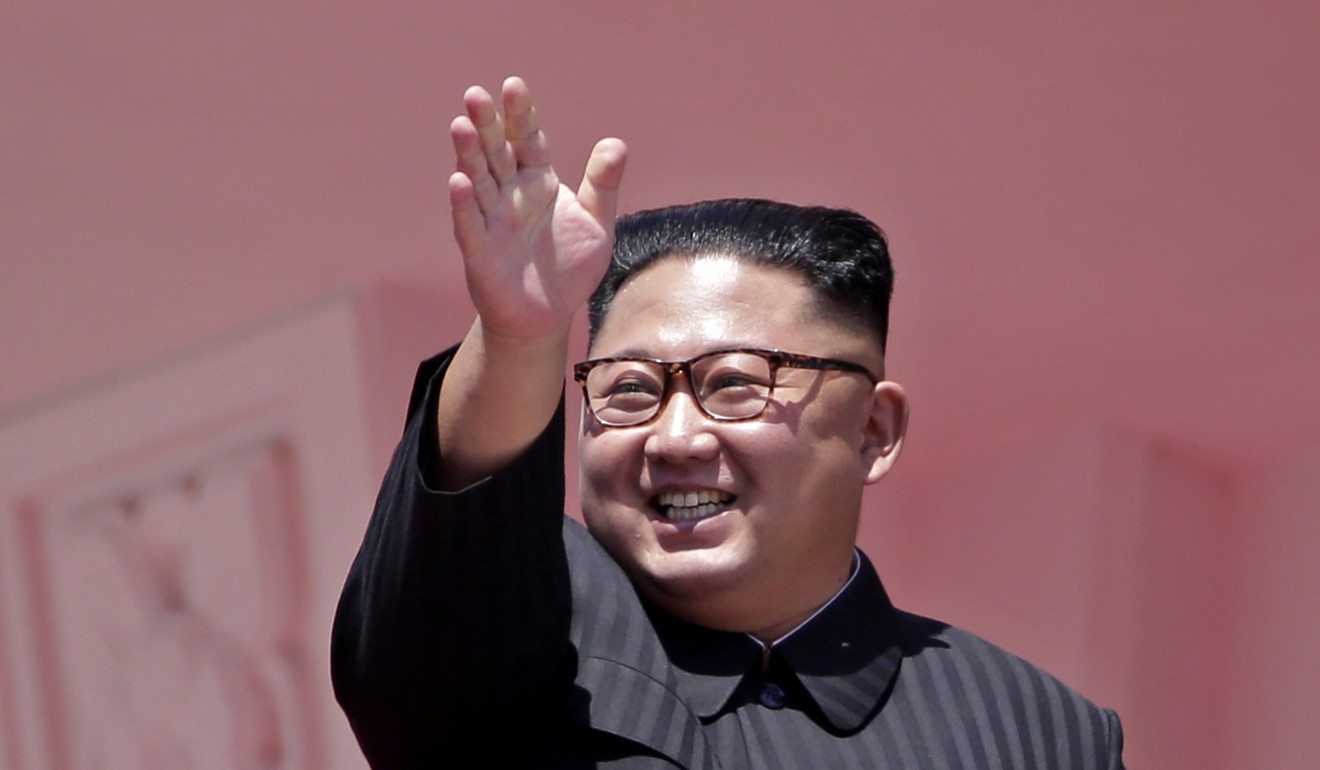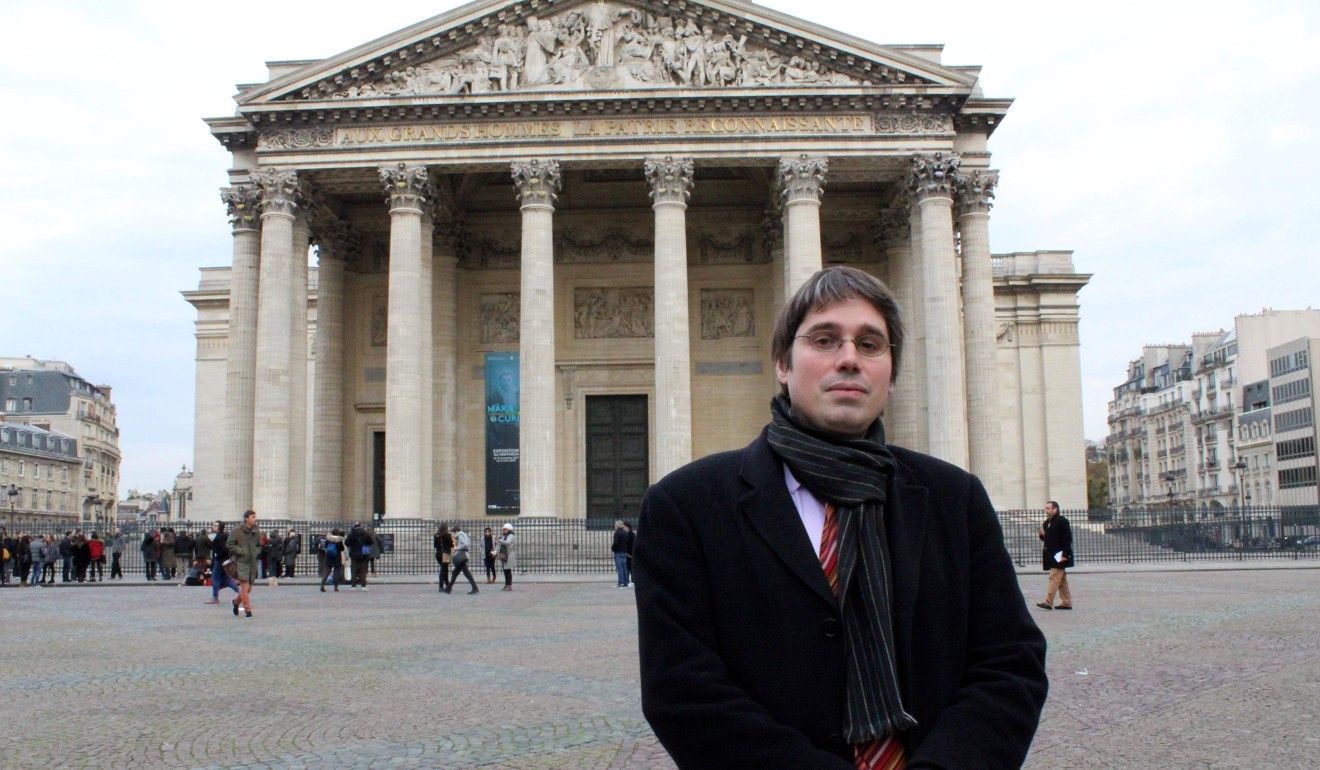
Senior French civil servant arrested on suspicion of spying for North Korea
- The head of the Franco-Korean Friendship Association is being investigated over the ‘collection and delivery of information to a foreign power’
Intelligence agencies have arrested a senior French civil servant on suspicion of spying for North Korea, a judicial source in Paris said.
Benoit Quennedey, the president of the Franco-Korean Friendship Association who has written a book on the isolated nation, was placed in custody on Sunday.
After an inquiry which began in March, prosecutors suspect him of the “collection and delivery of information to a foreign power likely to undermine the fundamental interests of the nation”, the source said.
Quennedey is being held at the headquarters of France’s DGSI domestic intelligence agency on the outskirts of Paris. It was not clear what type of information he was suspected of trying to pass to Pyongyang.

According to the Senate website, Quennedey is a senior administrator in France’s upper house of parliament in the department of architecture, heritage and gardens, in charge of administration and finances.
The office of the Senate president, Gerard Larcher, declined to comment.
Quennedey has written frequent articles on North Korea and travelled extensively throughout the peninsula, according to the website of his publisher Delga.
Last December Delga published Quennedey’s latest work, “North Korea, The Unknown”.
In a video posted on YouTube that month, Quennedey described the impoverished pariah state as a “model for development”, praising citizens’ free access to education and health care.
“I’ve been there seven times since 2005, and in North Korea, you notice it, there’s no litter on the ground,” he says in the video.
Koreas gain UN sanctions exemption for joint rail survey
Since 2007, Quennedey has been president of the Franco-Korean Friendship Association, formed in the late 1960s by journalists sympathetic to socialist and communist causes.
The group pushes for closer ties with Pyongyang and supports the reunification of the divided Koreas.
Quennedey attended France’s elite Sciences Po university as well as the ENA school which produces its top civil servants and political leaders.
In regular interviews with RT France, part of the Russian government-funded network, Quennedey was presented as an “expert in international relations” offering commentary and analysis on Korean relations and other subjects.

In 2013 he wrote “North Korea’s Economy: Birth of a New Asian Dragon?”. The book posited model growth in the country despite years of strict international sanctions aimed at forcing it to abandon its nuclear missile programme.
North Korean minister granted permission to enter Japan for Olympic meetings
Sanctions have crippled its economy, and the UN estimates that some 10.3 million people, or 41 per cent of North Korea’s population, are undernourished – even as neighbouring South Korea’s economy flourishes.
But hopes of a breakthrough were sparked last June when US President Donald Trump met regime leader Kim Jong-un for a historic summit meeting in Singapore.
Both men vowed to improve relations and Kim indicated he would abandon the nuclear work.
There have also been a string of gestures of reconciliation between North and South Korea, most recently on Monday when the two won a joint bid to have Korean wrestling recognised by Unesco as one of the world’s cultural treasures.
Progress has nevertheless been patchy, and Washington is still pushing to maintain sanctions until Pyongyang’s “final, fully verified denuclearisation”.
Researchers have accused the regime of using undeclared bases to hide nuclear-capable missiles, while Pyongyang’s state media reported this month that the country had developed an unspecified “ultra-modern tactical weapon”.
It is the second time this year that reports of suspected spying have emerged within France.
In May, officials revealed that two former agents at France’s DGSE foreign intelligence agency had been arrested last December on suspicions they had been passing information to China.

.png?itok=arIb17P0)